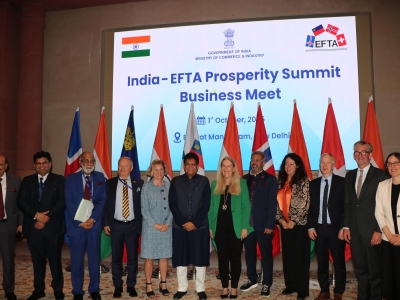Since the early 1990s, the European Free Trade Association has established an extensive network of contractual free trade relations all over the world.
It is the goal of EFTA's third-country policy to safeguard the economic interests of its Member States, to support and reinforce the process of European and interregional integration, and to contribute to worldwide efforts to liberalise trade and investment.
Latest news
Discover the latest developments in EFTA’s ongoing trade negotiations and its free trade relations worldwide.
The team
The Secretariat’s Trade Relations Division facilitates and coordinates free trade negotiations for the EFTA States.

